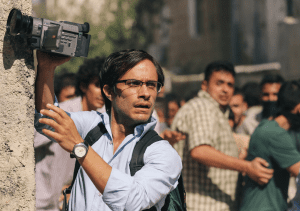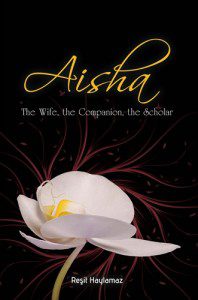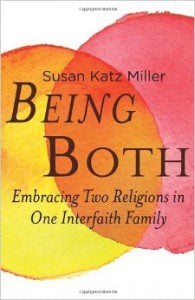 |
|
Halal-arious?
|
If self-deprecating humour is a distinctly Canadian characteristic, then Zarqa Nawaz‘s production of Little Mosque on the Prairie is testament to the rich multicultural heritage in the North. The first of eight episodes of Little Mosque on the Prairie aired last night amid much hype and a baffling amount of media attention, including coverage in various parts of the world (see CNN and BBC for just two examples), a feature story by CNN’s Paula Zahn (video clip), a CBC promotional event that involved camels traipsing about in downtown Toronto, and an email alert from CAIR-CAN urging Muslims to watch the show. For those of you who don’t know, Little Mosque on the Prairie is a new CBC sitcom featuring a community of Canadian Muslims living in Mercy, a fictional small town in Western Canada. The series has made headlines for its supposed controversial nature – Muslim characters in lead roles on prime time television. With humour to boot.
But much attention creates heightened expectations, and the first episode has proven somewhat underwhelming. In part, this is because the jokes were clichéd and unoriginal; in Muslim-only settings, individuals have been cracking the same jokes and making similar associations between ‘Muslim’ and ‘terrorist’ to that which was on view in the airport scene with lawyer-turned-imam Amaar Rashid. Watching Muslims quibbling over the management of a mosque or engaging in ‘an annual cage match’ to figure out the start of Ramadan has become commonplace, so much so that it lacked the oomph one might expect from a show made splashy because of its supposedly humourous element. Perhaps two of the edgier lines were on display when Amaar Rashid is detained by law enforcement officials. “If my story doesn’t check out, you can deport me to Syria,” he says, in cheeky reference to the Maher Arar debacle. The official’s gruff response? “You don’t get to choose which country we deport you to.”
Humour is about exaggeration, but some aspects of the show have struck a discordant tone among Muslims, not just because only a single actor, Zaib Shaikh, is Muslim in real life and Sitara Hewitt, who plays Rayyan Hommoudi, co-hosts The Comedy Network’s You Bet Your Ass decked out in skimpy attire. One cannot help but note, for example, that the imam leading the congregation in prayer incorrectly recites a verse from chapter 103 of the Qur’an. And some the non-Muslims on the show act in a decidedly un-Canadian manner. Note in particular the mean-spirited right-wing radio show host who baits the new imam in town, calling him Johnny Jihad and accusing him of terrorism to his face. Canadians nation-wide are noted for their remarkable friendliness; even those who know nothing about Islam or Muslims are welcoming of strangers, particularly on a personal level. And of course, resident critic Tarek Fatah had to get in a word or two. He questioned the stereotypical depiction of Muslims as “a group of people that prays and preaches” and “essentially a people whose lives revolve around a mosque”.
Interestingly enough, there were voices on both sides complaining about the show before it was even aired. On the one hand, some non-Muslims complained of yet another scheme by Canada’s national broadcaster to make Islam palatable to the general public. On the other hand, some Muslims privately expressed concern that the series might make light of their most deeply held beliefs and practices. Having survived the first episode, neither of these fears holds much credence, for the sitcom pokes fun at every character, Muslim or not. And yet it also serves a useful purpose, in that it portrays the interplay between the minority and majority well, giving each a bit of insight into where the other is coming from. To appreciate the humour, one must posses the ability to stand apart from one’s deepest commitments, observing oneself with a degree of distance and objectivity as would someone from outside. On watching Little Mosque on the Prairie, a Muslim gains some appreciation for the genuine anxieties some members of the majority group share when it comes to Islam and Muslims, particularly given events around the globe as well as the sensationalized media attention afforded extremist elements within the Muslim community. A non-Muslim get a glimpse of what it’s like to be members of a minority group that have only recently immigrated to a new country and are trying to live life and negotiate their identities – individually and collectively – as best they can given the circumstances.
Much of the hype can be attributed to the surprise non-Muslims have that it’s possible to pull off a series like this one given the tensions among Muslim minorities and the wider societal contexts in various parts of the world. While it is true that too often Muslims are characterized as frowning bearded mullahs on television, this can only be attributed to the very serious subject matter they are forced to tackle on an almost daily basis. (The drubbing Keith Ellison took on CNN Headline News is just one example.) But Muslim comedy in North America is not a new phenomenon. The Allah Made Me Funny comedy tour with Azhar Usman, Preacher Moss and Azeem Muhammad contains even more explosive content than Little Mosque on the Prairie. Nevertheless, the Canadian Muslim community is much too mature to raise a fuss over a television show, and it’s likely the sitcom will prove a conversation starter rather than the cause of offence. Moreover, while CBC deserves credit for airing the series, it isn’t as controversial as it’s been made out to be, and Canadian viewers – both Muslim and non-Muslim – can only hope that the next episode of Little Mosque on the Prairie is a tad bit edgier than the first.
Safiyyah Ally, a first-year Ph.D student in Political Science at the University of Toronto, is the host of “Let the Quran Speak,” a television show that airs Saturdays at 4:00 pm on VISION-TV.











